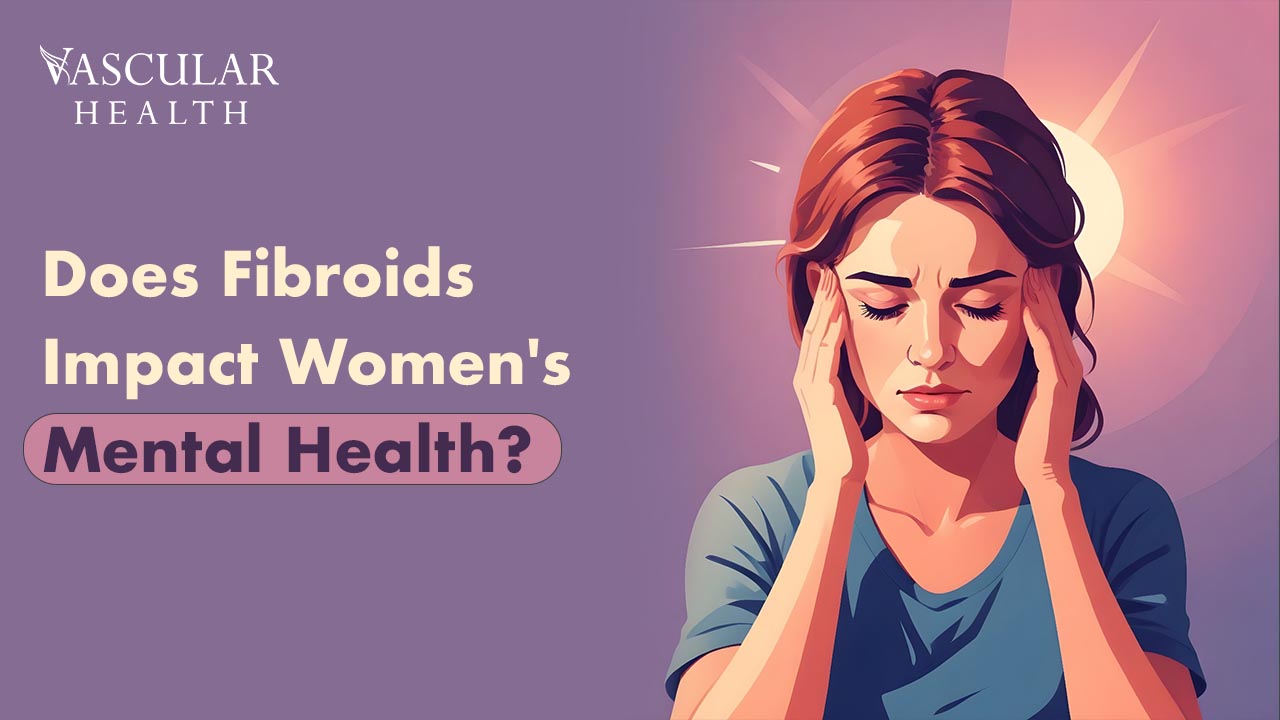Uterine fibroids are non-cancerous growths that develop within the uterine lining, affecting millions of women worldwide. In women with fibroids, great emphasis is on the physical symptoms and complications associated with fibroids, and their psychological influence on women’s quality of life is often overlooked. However, living with uterine fibroids impact women’s mental health and emotional well-being significantly, impacting various aspects of life.
Emotional Distress
The presence of uterine fibroids can produce a range of emotional responses in affected women, including anxiety, stress, and depression. The uncertainty surrounding fibroid diagnosis, concerns about symptoms and complications, and the potential effects of fibroids on fertility and pregnancy can contribute to emotional distress. Women with fibroids may experience frustration, helplessness, or isolation as they navigate the challenges associated with their condition. Their physical symptoms can also take a toll on mental health, leading to emotional exhaustion and reduced overall well-being.
Body Image and Self-esteem
The physical indications of uterine fibroids, such as abdominal bloating and changes in body shape, can have a significant impact on body image and self-esteem. Many women with fibroids report feeling self-conscious or insecure about their appearance, leading to decreased confidence and reluctance to engage in social or intimate activities.
Quality of Life
The combined effect of emotional distress and changes in body image related to uterine fibroids can significantly impair a woman’s overall quality of life. Fibroids may interfere with daily activities, work performance, and social relationships, leading to a diminished sense of fulfillment and satisfaction.
Chronic pain, fatigue, and disruptions to menstrual cycles can limit participation in recreational activities and hobbies, further contributing to a reduced quality of life. Women may find themselves withdrawing from social interactions or avoiding situations that worsen fibroid-related symptoms, leading to an upsetting quality of life.
Coping Strategies and Support
Coping with the psychological impact of uterine fibroids requires a multi-faceted approach that addresses both emotional and practical needs. Proper support from healthcare specialists, counselors, or support groups can provide guidance and appropriate coping mechanisms for managing emotional stress and improving general well-being.
Indulging in self-care activities such as exercise, meditation, and creative hobbies can help relieve stress and improve the individual’s mood. Open communication with partners, friends, and family members about the challenges of living with fibroids can promote understanding and empathy, strengthening social support.
Uterine fibroids not only concern women’s physical health but fibroids impact women’s mental health with a notable psychological toll. Affecting emotional well-being, body image, and quality of life. For providing comprehensive support and care to the affected women, recognizing and addressing the psychological impact of fibroids is essential.




